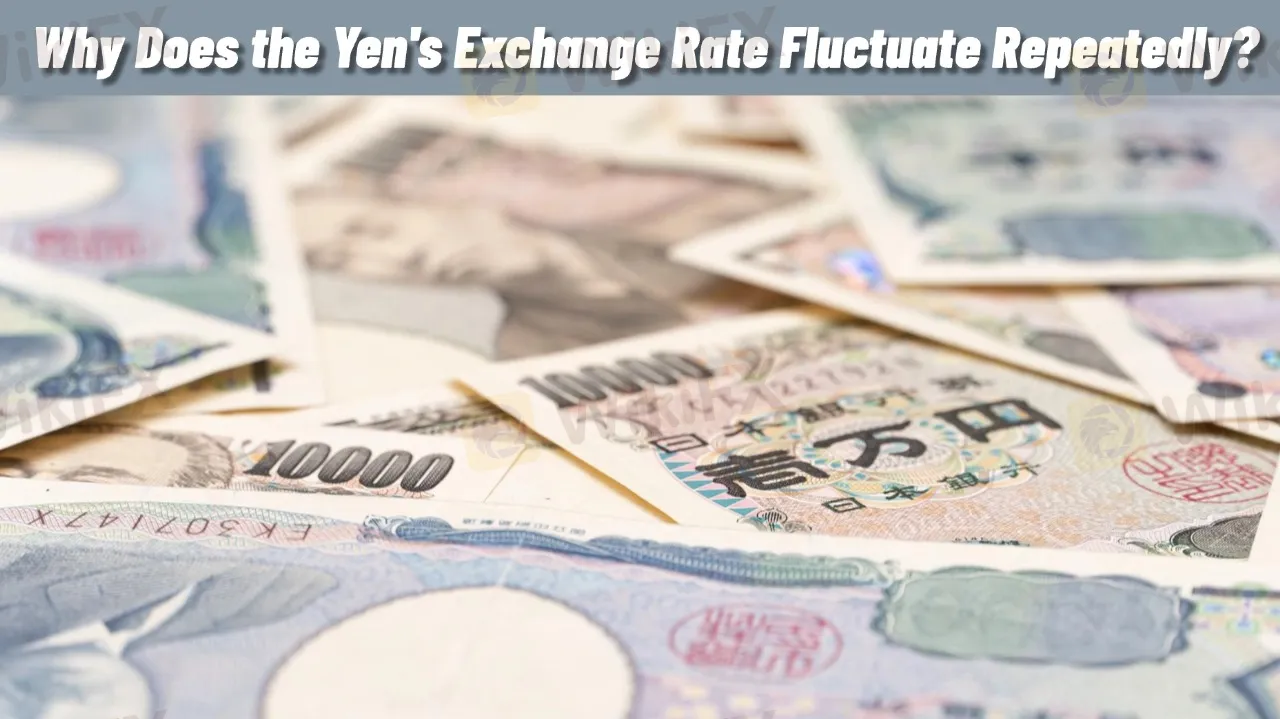简体中文
繁體中文
English
Pусский
日本語
ภาษาไทย
Tiếng Việt
Bahasa Indonesia
Español
हिन्दी
Filippiiniläinen
Français
Deutsch
Português
Türkçe
한국어
العربية
Why Does the Yen's Exchange Rate Fluctuate Repeatedly?
Abstract:JPY Exchange Rate Fluctuations: How Should Investors Respond?

Recently, the Japanese yen has experienced continuous fluctuations, briefly depreciating to around 151 yen per U.S. dollar on March 25. Shifting market expectations regarding U.S. trade policies have led to an unclear direction for the yen‘s movement. Although some tariff measures have been eased, market sentiment remains cautious, causing repeated short-term volatility in the yen’s value.
The yen's instability stems from multiple complex factors. First, U.S. trade policies may simultaneously drive inflation and curb economic growth, leading to fluctuating expectations for the U.S. dollar. Second, the monetary policies of the Bank of Japan and the Federal Reserve remain uncertain—while the BOJ may consider rate hikes, the Fed faces potential rate cuts. Changes in interest rate differentials significantly impact market trading strategies. Additionally, speculative capital moves rapidly in and out of the market, amplifying short-term fluctuations and making it difficult for the yen to establish a stable trend.
How Can Investors Navigate Market Volatility?
Amid sharp exchange rate fluctuations, investors should closely monitor interest rate policies in both Japan and the U.S. and adjust their trading strategies based on market expectations. In uncertain conditions, short-term traders can capitalize on price swings, while long-term investors should carefully time their entries to avoid excessive exposure during periods of heightened market sentiment. Additionally, prudent risk management is essential to prevent unnecessary losses from sudden market shifts.

Disclaimer:
The views in this article only represent the author's personal views, and do not constitute investment advice on this platform. This platform does not guarantee the accuracy, completeness and timeliness of the information in the article, and will not be liable for any loss caused by the use of or reliance on the information in the article.
Read more

Never Heard of Dynasty Trade? Here's Why You Should Be Worried
Have you heard this name before? No , it’s time you do because staying unaware could cost you. This platform is currently active in the forex trading and has been linked to several suspicious activities. Even if you’ve never dealt with it directly, there’s a chance it could reach out to you through ads, calls, messages, or social media. That’s why it’s important to know the red flags in advance.

WEEKLY SCAM BROKERS LIST IS OUT! Check it now
If you missed this week's fraud brokers list and are finding it difficult to track them one by one — don’t worry! We’ve brought together all the scam brokers you need to avoid, all in one place. Check this list now to stay alert and protect yourself from fraudulent brokers.

Catch the Latest Update on BotBro & Lavish Chaudhary
BotBro, an AI-based trading platform, became popular in India in 2024—but for negative reasons. Its founder, Lavish Chaudhary, who gained a huge following by promoting it heavily on social media. Since then, he has become well-known, but for many controversies. Let’s know the latest update about Botbro & Lavish Chaudhary.

Trading Other People’s Money | What Prop Firms Don’t Tell You
Proprietary (prop) trading firms have become increasingly popular. They give traders the chance to trade with larger amounts of money without risking their own savings. For many, this sounds like the perfect opportunity to grow faster and earn more. But while the benefits are appealing, there are also risks and hidden rules that traders must understand before joining a prop firm.
WikiFX Broker
Latest News
Is Your Forex Strategy Failing? Here’s When to Change
FSMA Warns That Some Firms Operate as Pyramid Schemes
Apex Trader Funding is an Unregulated Firm | You Must Know the Risks
Sigma-One Capital Scam? Investors Say They Can’t Withdraw Funds
Federal Reserve likely to hold interest rates steady despite pressure from Trump. Here's what that means for your money
WEEKLY SCAM BROKERS LIST IS OUT! Check it now
Intel drops 9% as chipmaker's foundry business axes projects, struggles to find customers
Palantir joins list of 20 most valuable U.S. companies, with stock more than doubling in 2025
Textiles to whisky: U.K.–India 'historic' deal is set to boost bilateral trade by over $34 billion a year
Thailand-Cambodia border clashes: Cambodia's economy has more to lose, analysts say
Currency Calculator


